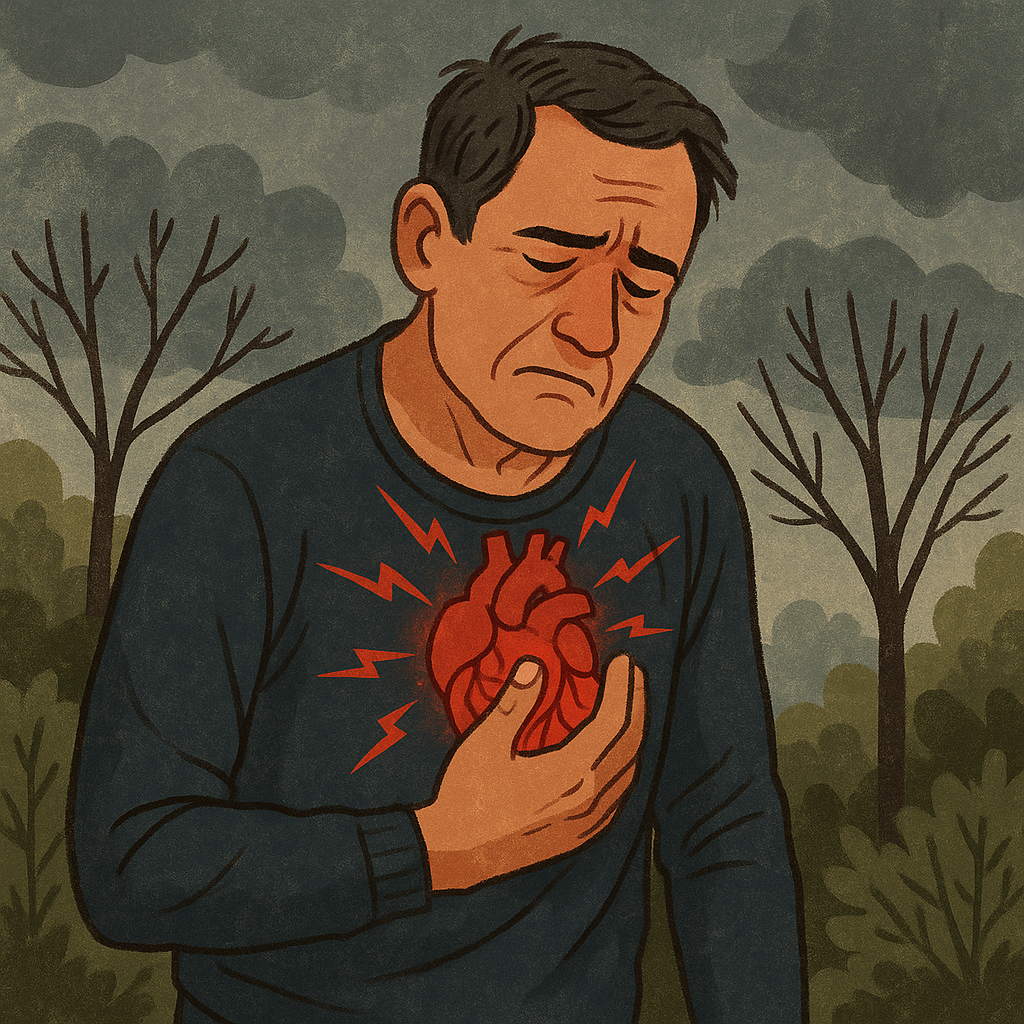Loneliness and the Heart: What Isolation Does to Your Cardiovascular

Health**
We often think of heart disease as being caused by smoking, poor diet, or lack of exercise --- and of course, these are major factors. But there's one that often goes unnoticed, even though it's just as serious: loneliness.
In a powerful 2016 study published in the medical journal Heart, researcher Nicole Valtorta and her colleagues made a striking discovery: loneliness and social isolation can significantly increase the risk of both coronary heart disease and stroke. In other words, feeling cut off from others can literally break your heart --- not just metaphorically, but biologically.
What the Study Found
This study analyzed data from over 180,000 people across multiple countries, using 23 high-quality, long-term studies. The findings were clear and consistent:
-
People who were socially isolated or felt lonely had a 29% higher risk of developing heart disease.
-
Their risk of suffering a stroke was 32% higher than those with stronger social ties.
These are numbers we usually associate with lifestyle diseases --- and yet, they come from something as simple (and as painful) as not feeling connected to others.
Valtorta, N. K., Kanaan, M., Gilbody, S., Ronzi, S., & Hanratty, B. (2016). Loneliness and social isolation as risk factors for coronary heart disease and stroke: systematic review and meta-analysis of longitudinal observational studies. Heart, 102(13), 1009--1016. https://doi.org/10.1136/heartjnl-2015-308790
How Can Loneliness Affect the Heart?
Social connection plays a hidden but vital role in regulating our bodies. When we feel lonely, our stress levels increase. Cortisol, the body's main stress hormone, stays elevated. Over time, this leads to inflammation in the blood vessels, higher blood pressure, and changes in heart rate --- all of which are damaging to cardiovascular health.
Loneliness also affects behavior. People who are socially disconnected are more likely to have poor sleep, less motivation for physical activity, and a higher likelihood of unhealthy habits --- like overeating or substance use --- all of which contribute to heart problems.
Why This Matters for Everyone
We often treat loneliness like an emotional inconvenience --- something we're expected to "get over" on our own. But this research shows that loneliness isn't just about feelings. It's about our entire physical well-being.
The authors of the study recommend that social connection should be considered as seriously as other lifestyle factors in the prevention and treatment of cardiovascular disease. That's a major shift in how we think about health.
What We Can Do
At KindTalks, we believe that even small steps toward connection can change lives. A friendly conversation. A shared moment of empathy. A space where people feel seen and safe. These are not luxuries --- they're part of staying well.
If you or someone you know feels disconnected, know that it's not "just in your head" --- it's real, it matters, and it can be changed. Reach out. Talk. Be heard. For your heart, for your health, and for your life.
💡 Final Thought
Loneliness is more than a feeling --- it's a health risk. But connection is more than comfort --- it's a powerful form of medicine.
Let's start treating it that way.
Related Articles
Loneliness is often imagined as a private, individual experience --- a quiet ache that lives inside us, separate from the world around us. But what if...
When we hear the word "loneliness," we often imagine a quiet evening alone or someone feeling left out at a party. But research is increasin...
We often assume that as we get older, we grow more resilient --- that the challenges of life somehow get easier with time. But for many adults over 50...